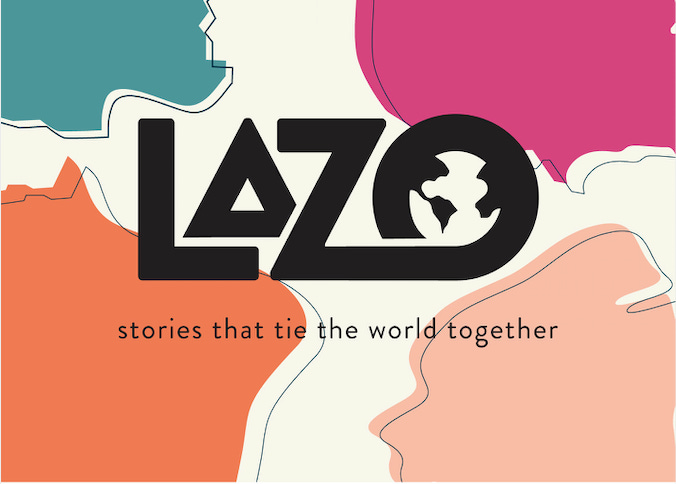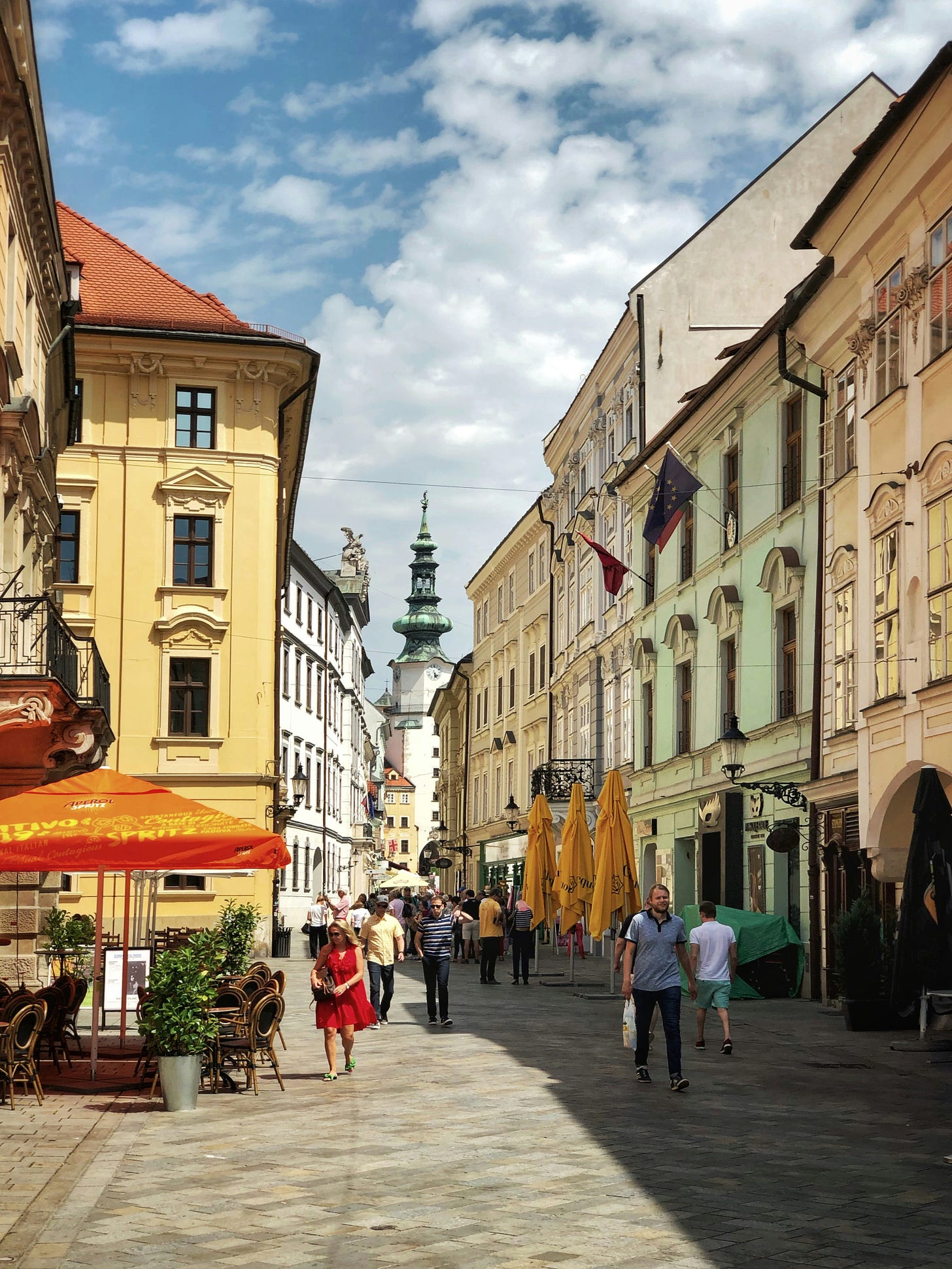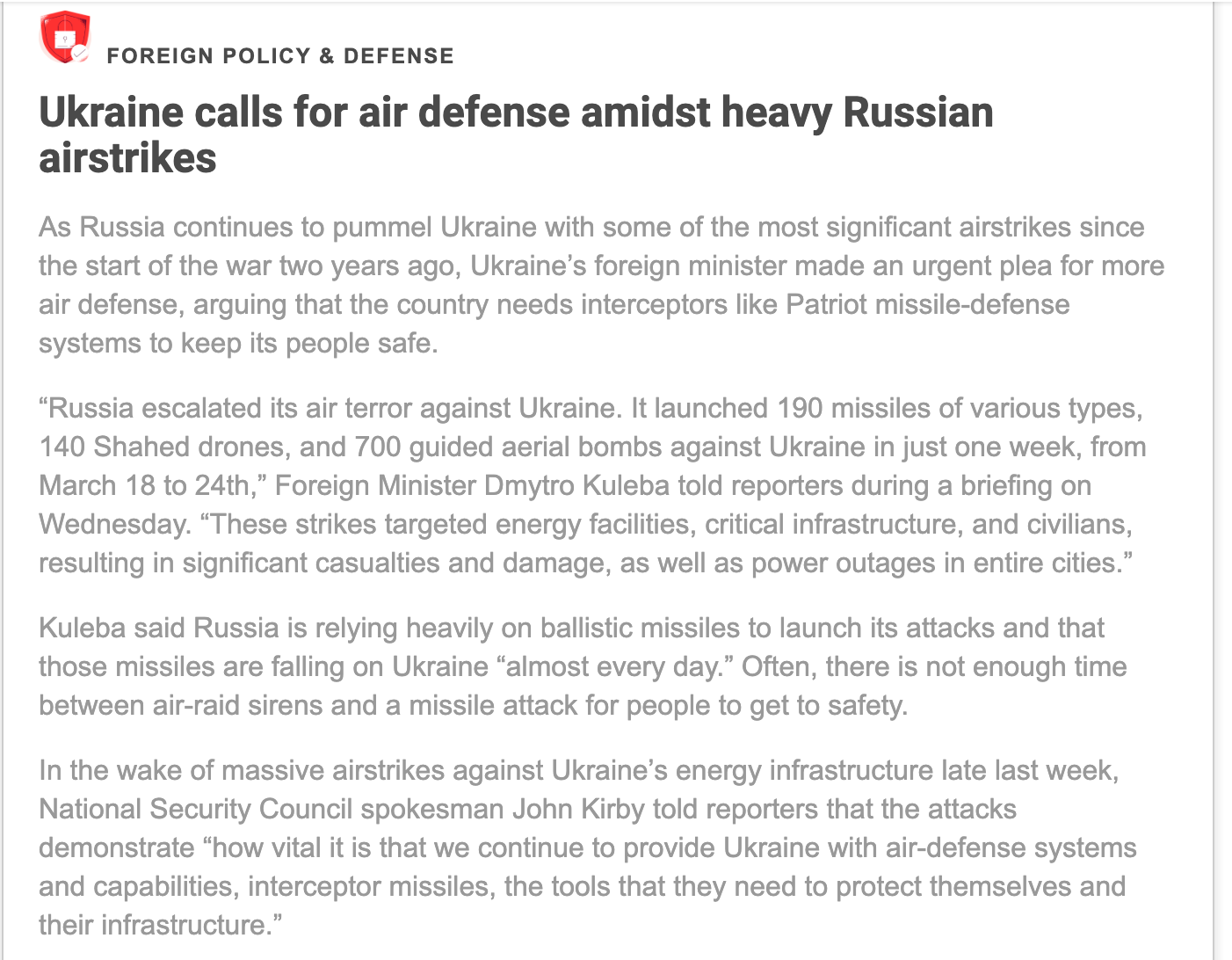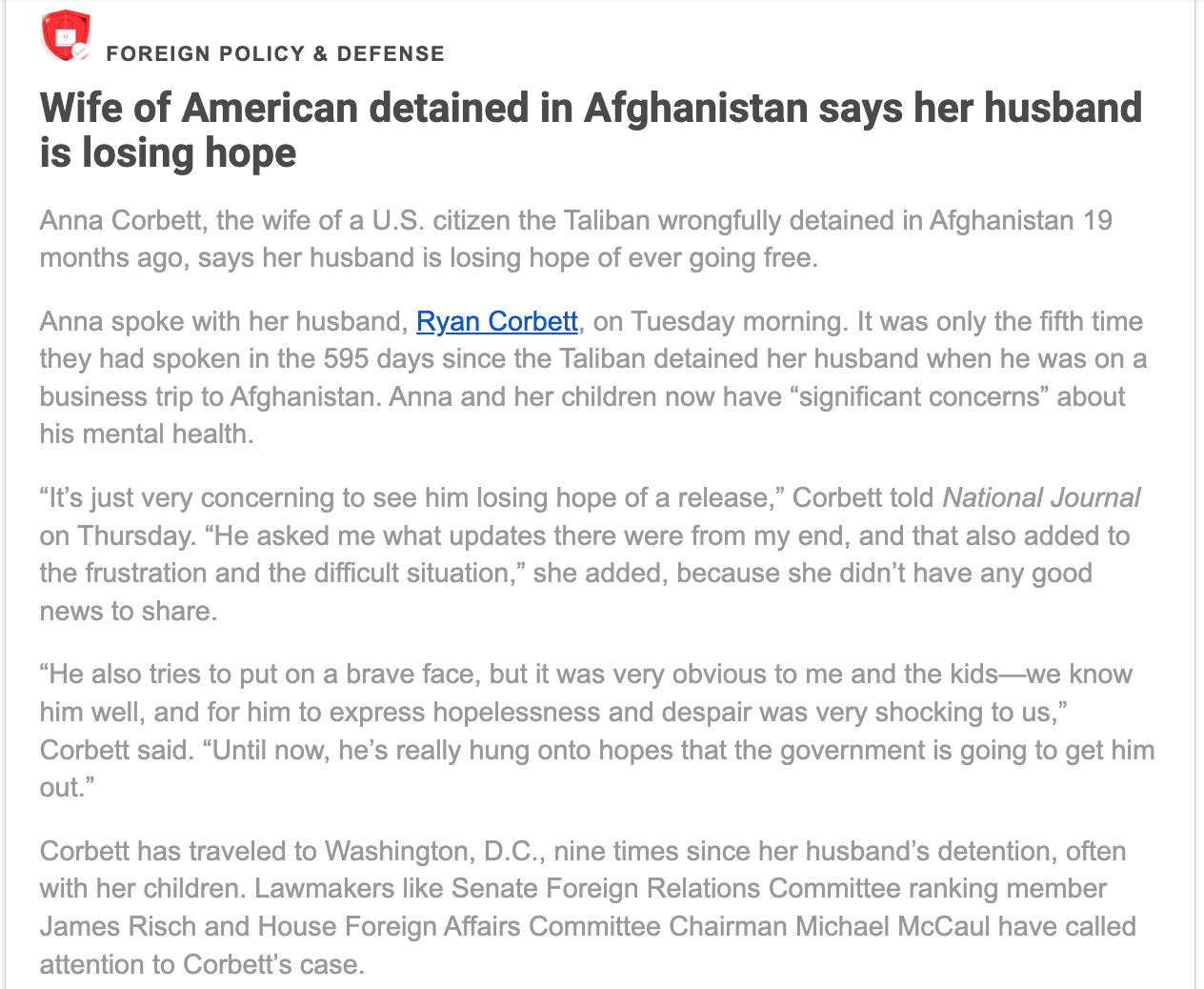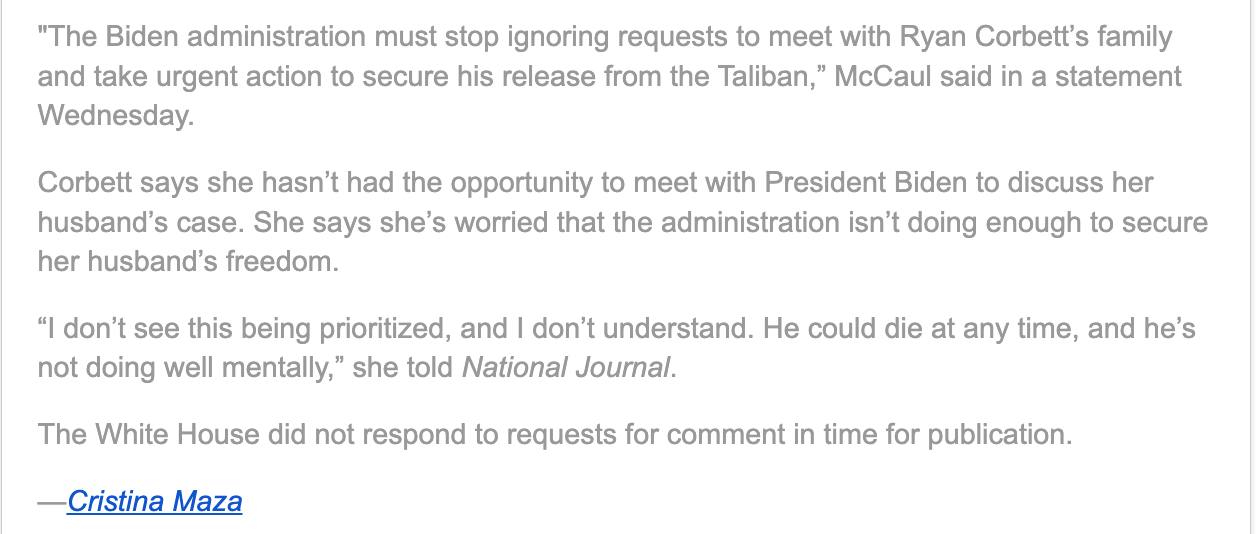Slovakia. The country has been singled out recently as the European Union’s next problem child. Prime Minister Robert Fico, who returned to power late last year, was described by the Journal of Democracy as practicing “a hardnosed, vengeful form of politics.”
He’s also called for an end to Slovak support for Ukraine, parroting Russian talking points and nationalistic rhetoric, and is attempting to assert control over the country’s public broadcaster. People formed a human chain this week around the broadcaster’s radio and television buildings in protest.
Slovakia’s recent controversial changes to its penal code have also led the European Union to warn Bratislava it could face fines or have some European funding suspended. Hungary and Poland have previously faced similar consequences in response to concerns over judicial freedom and the rule of law.
Now, presidential elections will determine whether anyone can put a substantial check on Fico’s ambitions. The second round of elections will take place on April 6. I added information about that in the ‘What I’m Reading’ section below. It’s a Central and Eastern Europe-heavy week in general.
But there’s reason to have some hope that Slovakia will eventually swing in the right direction, partly because the pro-EU candidate just won the first round in the presidential elections.
I spoke to Lucia Yar, a 36-year-old from the eastern Slovak town of Snina who is now running as a candidate for the European Parliament in the June EU parliamentary elections. With a background in academia and think tanks, this is her first time wading into the murky world of politics.
She’s running as a candidate for Progressive Slovakia, a social-liberal and progressive political party with a large contingent of highly educated young people. The party is led by the Vice President of the European Parliament, Michal Šimečka. It’s also a member of ALDE, the Alliance of Liberals and Democrats for Europe Party, a European political party comprised of national-level parties from across Europe.
Progressive Slovakia supports the rule of law, an environmental agenda, and protections for minorities, among other issues.
I’ll continue talking to people like Lucia as I think more about events in Slovakia, but here are just a few of the noteworthy things she said:
On the difference between Robert Fico and Hungarian Prime Minister Viktor Orbán:
[Fico] is full of rhetoric about how we’re against sending munition to Ukraine, how Slovakia will not send anything, and how Ukraine is the most corrupt country in the world. But then he goes to Brussels and votes together with everyone else. The rhetoric is different from the action.
The big difference from Orbán is that Fico isn’t blackmailing anyone in the European Union right now. But that may change in the future.
On EU funding for Slovakia and the rule of law:
We see how the gaps are widening between Slovakia and the rest of the European Union. If you cross the border into the Czech Republic or even to Poland, everybody can see that there are differences in infrastructure and how things are developed. European funds for Slovakia are really important, and due to all kinds of troubles related to the rule of law, since the new government came to power, this money might not be coming anymore. We’ve already received some warning from the European Commission that money for Slovak development, the EU Recovery Funds, might not be coming.
What I’m writing:
• I spoke with the Ukrainian ambassador in Washington, Oksana Markarova, about how to be a wartime ambassador, plans for rebuilding Ukraine, and why the West should ramp up sanctions on Russia's financial sector now. This interview is unlocked and free to read.
• I wrote a deep dive into the efforts to beef up the AUKUS alliance (that new initiative that the U.S., UK, and Australia began in 2021) ahead of uncertain elections and during several major wars. This story is unlocked and free to read.
My weekly news blurbs:
What I’m reading:
• Russia intensified its online efforts to hamper military funding for Ukraine in the United States and Europe, mainly by using harder-to-trace technologies to push arguments for isolationism ahead of the U.S. elections. The New York Times has the story.
• Meanwhile, Czech intelligence busted a Moscow-financed network that spread Russian propaganda and wielded influence across Europe, including in the European Parliament, the AFP reports.
• The Moscow Times also reports that Polish security services said they raided a Russian spy network in cooperation with Czech intelligence, which busted a major Russian propaganda network one day earlier.
• An alleged Russian propaganda network that paid politicians in several countries to influence the coming European Parliament elections has been broken up, the BBC reports. The operation sought to pay off unidentified politicians from Germany, France, Poland, Belgium, the Netherlands, and Hungary via the popular Voice of Europe website.
• Russia charged four men from Tajikistan for allegedly attacking a Moscow concert hall and killing at least 137 people, the BBC reports. The self-styled Islamic State militant group claimed responsibility for the attack and posted video evidence, which the BBC verified.
• Russian President Vladimir Putin acknowledged that Islamic militants carried out the terror attack in Moscow but nevertheless attempted to blame Ukraine, Politico reports.
• Many Central Asians in Russia, especially the Tajik community, have faced heightened xenophobia following the recent attack on a concert hall near Moscow, Deutsche Welle reports. Some politicians have also called for curbs on immigration.
• Belarusian President Alexander Lukashenko inspected a tank battalion near the Lithuanian border and instructed that any “provocation” there must be met with force, Reuters reports.
• Poland demanded an explanation from Russia after one of its missiles briefly strayed into Polish airspace during a significant missile attack on Ukraine, prompting Poland to activate F-16 fighter jets, the Associated Press reports.
• Romania said it found fragments of what appeared to be a drone near the border with Ukraine, Reuters reports.
• Liberal, pro-EU candidate Ivan Korčok confounded pre-election polls to win the first round of the Slovak presidential election with 42 percent of the vote, Politico Europe reports. His opponent, Peter Pellegrini, an ally of Kremlin-friendly Prime Minister Robert Fico, came in second with 37 percent. A runoff is set for April 6.
• Back in 2020, Slovakia’s then-Prime Minister Peter Pellegrini asked Hungarian Prime Minister Viktor Orbán to act as a middleman between him and the Kremlin, according to an investigation by VS Square. He aimed for an invitation to Moscow just before Slovakia’s parliamentary election.
• In Hungary, Péter Magyar, the ex-husband of former Justice Minister Judit Varga and a former ruling party official, released a recording alleging high-level corruption, Politico Europe reports.
• Thousands protested in Budapest near parliament, demanding that the chief prosecutor and Prime Minister Viktor Orban resign after the former government insider accused a senior aide to Orban of attempting to interfere in a graft case. Reuters has the story.
• The High Court in London ruled that Julian Assange, the embattled WikiLeaks founder, cannot be immediately extradited to the United States, saying U.S. authorities must first offer assurances about his treatment, including protection from the death penalty.
• Two of Israel’s three war cabinet members expressed opposition to government proposals to recruit ultra-Orthodox men into the military, setting up a potential collapse of Israel’s government coalition, CNN reports.
• Israel’s Supreme Court halted government subsidies for many ultra-Orthodox men who do not serve in the army, the Associated Press reports.
• The United Nations Security Council passed a resolution calling for an immediate ceasefire in Gaza during the remaining weeks of Ramadan, ending a five-month deadlock during which the United States vetoed three calls for a cease to the fighting and Russia and China vetoed the previous one, the New York Times reports. Israeli Prime Minister Benjamin Netanyahu said he would not send a planned high-level delegation to Washington for meetings with U.S. officials.
• The Palestinian Authority announced a new cabinet, pledging to form a technocratic government that could help rebuild Gaza and fight corruption, the Washington Post reports.
• Brazil’s Supreme Court ordered former President Jair Bolsonaro to explain why he spent two nights at the Hungarian Embassy. The move follows a New York Times investigation that showed Bolsonaro hiding at the Hungarian Embassy in Brasília days after authorities confiscated his passport because he was under criminal investigation.
• Colombia expelled all Argentine diplomats in its embassy in Bogota after Argentina’s new right-wing President Javier Milei denounced Colombian President Gustavo Petro as “a terrorist murderer,” CNN reports.
You can write to me for any reason: c.maza@protonmail.com





